Topic: politics (and political attitudes), sociological data, elections (and polls)
Topic: sociological data
Topic: politics (and political attitudes)
Topic: civil society, politics (and political attitudes)
Topic: politics (and political attitudes)
Topic: elites, EU, politics (and political attitudes), public opinion
Topic: economics, social inequalities
Topic: work
Comparative documentation on earnings and household incomes is gathered and analyzed to show recent tendencies in distributional patterns in the Czech Republic, Hungary, Poland and Slovakia. No revolutions, but important shifts mostly maintaining differences between countries have occurred since 1989. Inequality rose in both personal and household incomes, and market patterns seem to have developed at the expense of demographic determination of incomes.
Topic: migration and mobility, wages and incomes, social inequalities
Under the transformation period, economic inequality is assuming new meanings and accents, and its importance growing. We show recent changes and various facets of inequality as displayed in distributions of earning, household incomes and wealth. In earnings, instead of the system covering the costs of labour force reproduction, human capital is better rewarded, thus, the importance of ownership and job grows.
Topic: economics, wages and incomes, social inequalities, transformation
Statistical and sociological surveys are used to show the long-term development in earnings disparities. A considerable equalisation in wages occurred in three phases: the first one occurred during the Nazi occupation, then in the 1945-1948 period and finally after the post-Communist victory. The Communist ‘rewarding’ system was characterised by the predominance of demographic factors, the decline of secondary and especially tertiary education and the priority given to productive branches.
Topic: gender, wages and incomes, social inequalities
Topic: identity, politics (and political attitudes)
The analyses presented in this book focus on the election to the Czechoslovakian Federal Assembly in June 1990. They describe and explain the development of the political parties, the social and political features of the candidates in this parliamentary election, the electoral behavior of the public, and the formation of government.
Topic: politics (and political attitudes)
Topic: public policy
Abstract
Topic: wages and incomes, social inequalities
Topic: economics, transformation
A large documentation of statistical and sociological surveys is used in this book to present a plastic picture of the transition in the Czech Republic “from below” i.e. as experienced by individuals and households. Other East-Central European and the EU countries serve as a comparative context. The focus in on the economic dimension of the transformation, as displayed in earnings, secondary resources, household incomes and expenditures, financial hardship and poverty.
Topic: economics, transformation
Topic: elections (and polls)
Topic: public policy, elections (and polls)
Topic: public policy

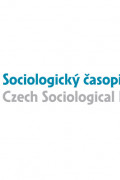
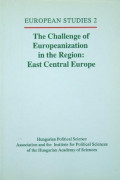
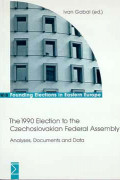
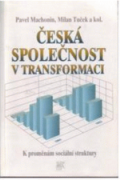
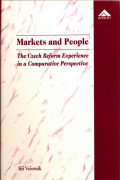
Newsletter
Facebook
X
Tweets by SociologickyNewsletter